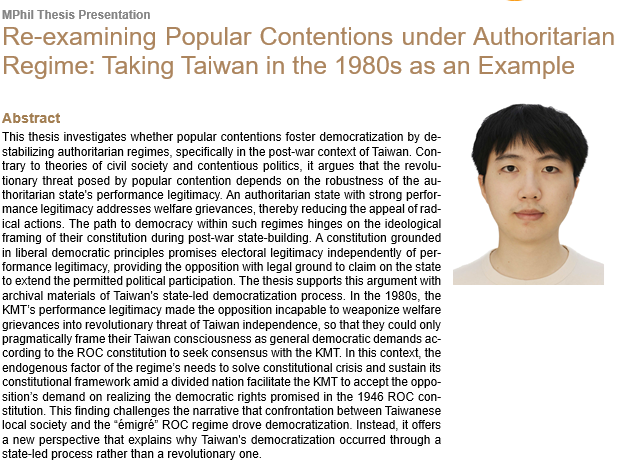Abstract
This thesis investigates whether popular contentions foster democratization by destabilizing authoritarian regimes, specifically in the post-war context of Taiwan. Contrary to theories of civil society and contentious politics, it argues that the revolutionary threat posed by popular contention depends on the robustness of the authoritarian state's performance legitimacy. An authoritarian state with strong performance legitimacy addresses welfare grievances, thereby reducing the appeal of radical actions. The path to democracy within such regimes hinges on the ideological framing of their constitution during post-war state-building. A constitution grounded in liberal democratic principles promises electoral legitimacy independently of performance legitimacy, providing the opposition with legal ground to claim on the state to extend the permitted political participation. The thesis supports this argument with archival materials of Taiwan's state-led democratization process. In the 1980s, the KMT’s performance legitimacy made the opposition incapable to weaponize welfare grievances into revolutionary threat of Taiwan independence, so that they could only pragmatically frame their Taiwan consciousness as general democratic demands according to the ROC constitution to seek consensus with the KMT. In this context, the endogenous factor of the regime’s needs to solve constitutional crisis and sustain its constitutional framework amid a divided nation facilitate the KMT to accept the opposition’s demand on realizing the democratic rights promised in the 1946 ROC constitution. This finding challenges the narrative that confrontation between Taiwanese local society and the “émigré” ROC regime drove democratization. Instead, it offers a new perspective that explains why Taiwan's democratization occurred through a state-led process rather than a revolutionary one.

